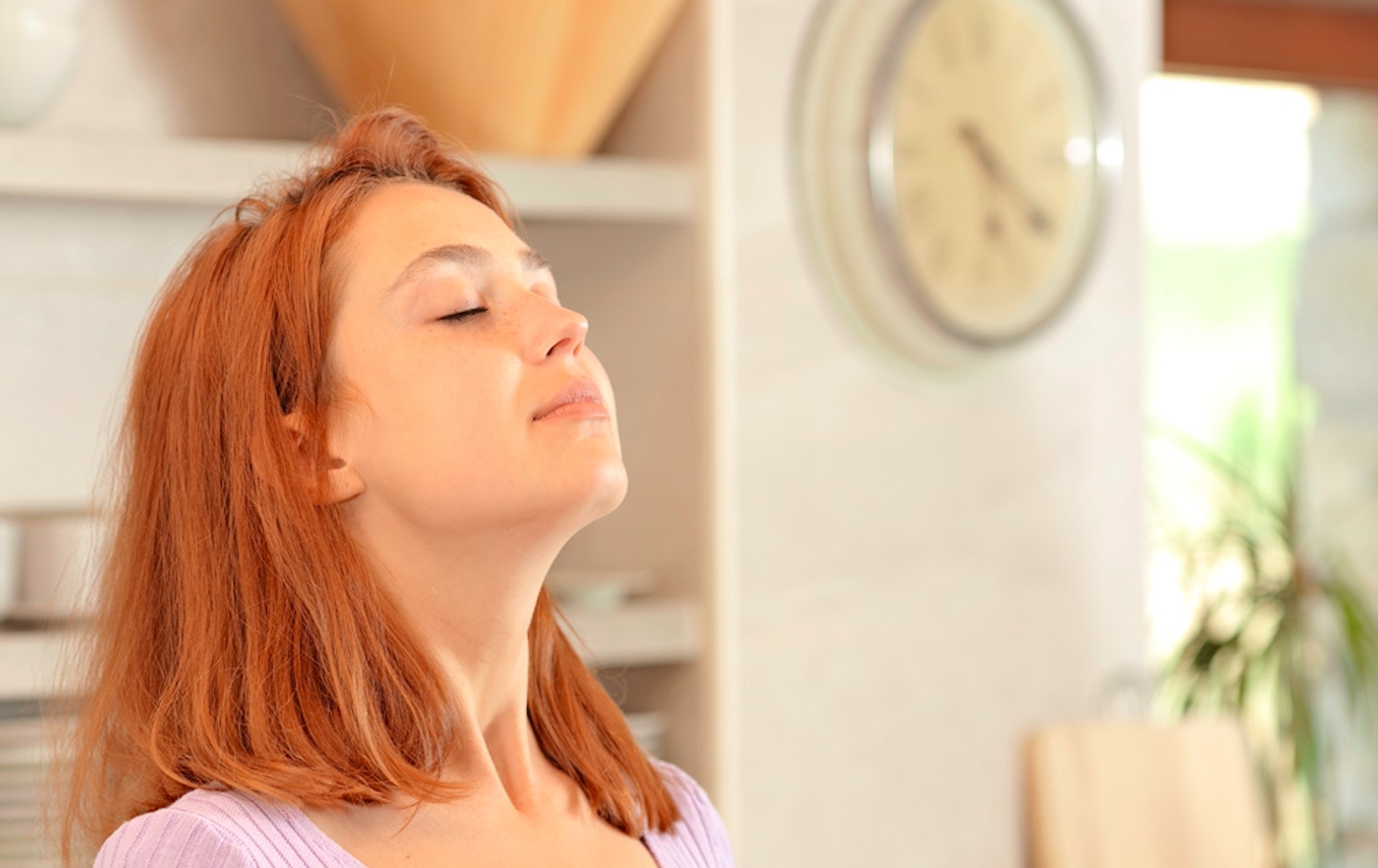Covid cases are finally decreasing, masks are off and we can look forward to long summer days, but the pandemic has a sting in its tail, as a record number of people are suffering stress, burnout and anxiety in its aftermath.
“The last two years have left us in hyper-alert mode,” says author and stress expert Dr Nerina Ramlakhan. “Life may be more normal now, but it’s been a traumatic time and it takes a while for that to leave your nervous system. While some people are struggling with stress and anxiety, others may feel exhausted and unable to relax like they used to. It’s like a post-viral fatigue, even if you didn’t actually have the virus.”
Dr Nerina says we can all feel calmer with a little help. “It’s useful to look at life’s pressures and your coping strategies as a balancing scale,” she says. “On the one side you have the pressures you’re under, and on the other side you have your coping strategies. If those two are balanced, you won’t experience stress, you’ll feel more positive and you’ll get more joy out of life.”
Dr Nerina’s new book, Finding Inner Safety, is packed with quick and easy exercises to help you form your own stress-busting toolkit. With these skills, you’ll feel calmer, more positive and better equipped to deal with life’s stresses and strains. Here are some of Closer’s favourites…
Give yourself a hug

If you find yourself feeling overwhelmed by anxiety or stress during the day, Dr Nerina recommends a simple version of a technique called Havening. Fans of the alternative therapy include self-help guru Deepak Chopra, Paul McKenna and even singer Justin Bieber.
“Cross your arms, place your palms on your shoulders and stroke your arms downwards to your elbows,” says Dr Nerina.
“Keep repeating this, brushing your hands down your arms. While you do this, repeat the words, ‘I am safe, I am safe in my body, I am safe in my life.’ It’s thought to work by boosting our levels of the feel-good hormone serotonin, and research shows it can reduce the symptoms of anxiety and depression.”
Do a morning check-in

Do you sometimes wake up feeling anxious, with a racing mind or with a slight sense of dread about the day ahead? It’s surprisingly common and even more so after the pandemic, because we’ve spent two years worrying about whether we and our loved ones will be safe. However, a deceptively simple exercise can transform the way you feel. When you wake up, avoid rushing to open your eyes. Instead, check in with your breathing and follow it for five exhalations. As you do that, ask yourself, “How am I feeling right now?”
Dr Nerina explains, “Most of us automatically reach for our phones when we wake up – we have a natural desire to connect, because we think it’ll make us feel calm and safe. But looking at social media or watching the news can make us feel far worse. Instead, we’ll feel much calmer if we spend a moment connecting with ourselves first. This is such a simple routine, but it helps you not to get caught up in over-thinking. On the days that I don’t do this, I find myself rushing around, feeling overwhelmed with everything I have to do.”
Sigh it out

Have you ever noticed yourself sighing when you face a daunting task? It’s a spontaneous reaction, but a sigh can also be harnessed as a mood-boosting tool.
“When we sigh, it drops us into feelings of calm and contentment,” says Dr Nerina. “Try it now. Take a big, exaggerated breath in, hold it for a second or two, then sigh it out through your mouth. Make a sound as you do so. Try it again, this time exaggerating the exhalation and making it longer. The way we breathe directly impacts the wiring of our brain. When we’re stressed, we often hold our breath or take more shallow breaths, which stimulates the nerves that produce adrenaline and the stress hormone, cortisol. In contrast, when you sigh or exhale, you activate a different part of your brain and trigger a relaxation response. It’s a great technique if you’re feeling panicky.”

Have a pleasure snack
Have you heard of the negativity bias? We are hardwired to remember criticism over compliments, or bad experiences over happy times. And when we feel overwhelmed with stress or anxiety, it can be harder to notice the things that are good in life. “Our negatively biased brains want us to look for what is wrong,” explains Dr Nerina.
“We are not primed to look for what is right.” Thankfully, though, it is possible to grow our positivity bias, and doing small pleasurable things every day is a great place to start.
“We can retrain our brain to notice the good in life,” says Dr Nerina. “But we need to repeatedly tell it when something good is happening, and let it soak in the experience. Repeatedly exercising those pleasure muscles fires up the neurological pathways that make you feel more positive.”
To do this, Dr Nerina recommends incorporating “pleasure shots” into every day and savouring each moment. “It could be a walk, a warm bath or stroking your dog,” she says. “I love my morning cup of tea, but instead of gulping it down, I tell myself how pleasurable it is. The more you tell your brain, the more receptive it becomes to receiving pleasure. You’ll start to notice other moments of joy throughout the day too.”
Dr Nerina’s book, Finding Inner Safety – The key to healing, thriving and overcoming burnout, is published by Capstone, £14.99
